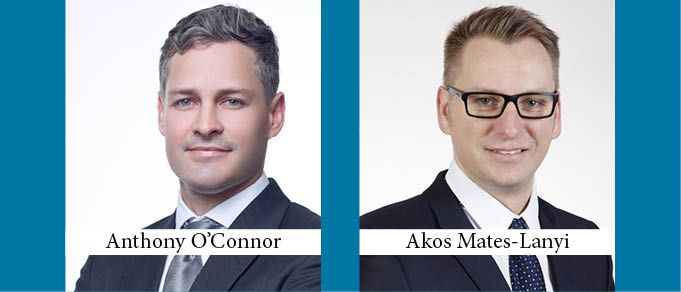The last 18 months have seen significant interest and activity in the Hungarian start-up ecosystem.
In addition to the continued efforts of a number of market players active in venture capital investments, the added emphasis given to the sector in the form of the 2016 establishment of Hiventures (formerly Corvinus Kockazati Tokealap-kezelo) – a venture capital fund manager owned by MFB Invest – has provided a significant boost to the industry. Since its establishment, Hiventures has completed more than 100 deals in Hungary, and projections for 2018 suggest that its activity will continue. In addition, events such as the Start-Up Safari have provided a forum for Hungarian and international industry players to come together, exchange and pitch ideas, and build a sense of community for entrepreneurs, VC investors, and intermediaries. The Hungarian Venture Capital Association plays a key role as well.
Kinstellar, which has advised a significant number of investors and entrepreneurs over the past year and a half, is proud to have played a role in developing the start-up ecosystem. Corporates, particularly in the banking and telecom sectors, continue to explore ways to create shareholder value and execute strategic objectives through venture capital investments, while Hiventures continues to play a broad role in fostering a culture of innovation and entrepreneurship, to build upon and capture opportunity within a population that is particularly strong in the fields of engineering, science, and mathematics.
The market is maturing, as entrepreneurs become increasingly familiar with engaging with venture capital investors, and sophisticated in how they do so. Two hallmarks of this trend are: (1) a deep understanding of the value a VC investor can have in bringing both broad and specialized business expertise to a start-up business (rather than a focus merely on the opportunity to ramp up growth by tapping into external capital), and (2) a desire to develop bespoke solutions in the investment documentation, stemming from a greater understanding of investment terms and the need to ensure that those terms best suit the underlying business and the strategic objectives of both the founders and investors.
Certain issues, based on our experience, should be given particular attention:
Intellectual Property
Intellectual property issues are of utmost importance for a VC investment. In this context, the biggest challenge is to identify, properly document, and protect the intellectual property right throughout the investment. Usually, investors require strong warranties as to the ownership, use, and availability of the intellectual property.
Employee Pool
The employee pool is the amount of the company that is reserved for future issuance to employees. This is a great way to motivate the employees and to make them directly interested in the success of the company. Parties should understand that the size of the pool has an impact on the valuation of the financing; therefore, it is important to agree on the terms of the employment pool at the outset of the investment.
Anti-Dilution
Although anti-dilution provisions are key economic provisions of the term sheet, they are often not attended to with necessary care. These provisions protect the investor from an equity dilution resulting from later issues of stock at a lower price than what was paid by the original investors. According to our experience, full-ratchet anti-dilution – in which the investor’s percentage ownership remains the same as it was following the initial investment – has become more and more popular for investors.
The founders may mitigate this risk by negotiating a moderate version of the anti-dilution rules: weighted average anti-dilution. The investor will still be compensated for his/her loss, but the conversion price of the newly issued series will be reduced.
We expect the approach to the above issues to evolve in the coming years, as more deals are executed and the landscape of investors and entrepreneurs changes. One trend we have witnessed recently is the active and specific interest newly created funds from neighboring countries are showing in Hungarian venture capital investments. No doubt the perspectives and experiences of those investors will contribute to the development of the local ecosystem and the approach taken to the key terms discussed above. One thing is for sure: the Hungarian venture capital industry has both challenges and a good deal of opportunity ahead, and Kinstellar looks forward to being a part of it.
By Anthony O’Connor, Partner, and Akos Mates-Lanyi, Managing Associate, Kinstellar Hungary
This Article was originally published in Issue 4.12 of the CEE Legal Matters Magazine. If you would like to receive a hard copy of the magazine, you can subscribe here.















